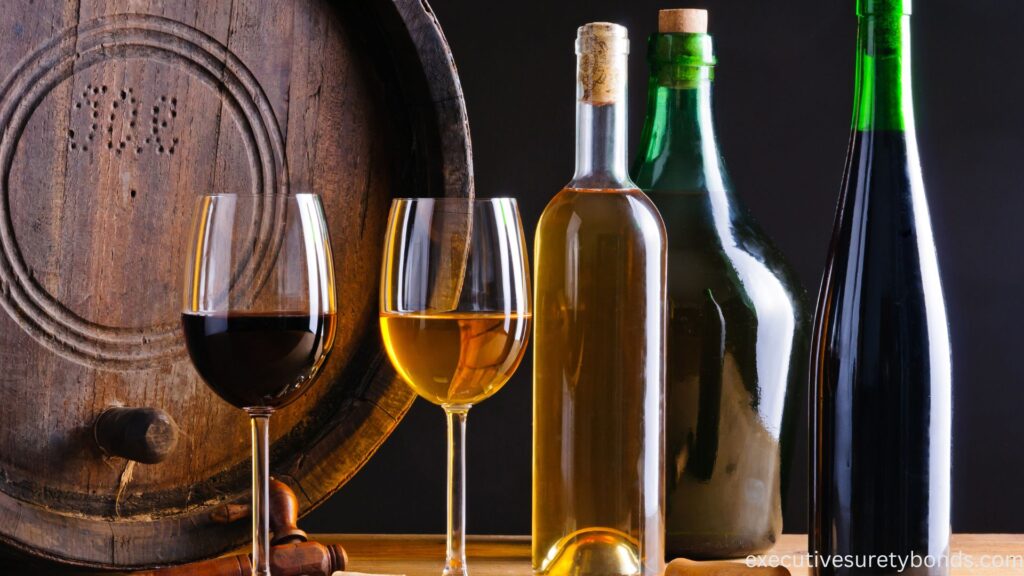Introduction
Budding interest in winemaking and the regulations that surround it, you’re in for a flavorful journey. In this article, we’ll uncork the secrets of the Washington State Domestic Winery License Bond, explaining its purpose and importance in simple terms.
The Purpose of the Bond
Let’s start by understanding the purpose of the Washington State Domestic Winery License Bond. Domestic wineries are the artisans behind the bottles of wine that grace our tables and celebrations. To ensure the integrity of winemaking practices and protect the interests of consumers, the state requires wineries to obtain this bond.
The bond serves as a financial safety net, guaranteeing that domestic wineries will conduct their business ethically and in compliance with state regulations. It acts as a pledge: if a winery fails to meet their obligations or engages in unethical practices that harm consumers or violate regulations, there are funds available to cover potential damages.
The Cost of the Bond
Now, let’s demystify the cost of the Washington State Domestic Winery License Bond. The bond amount isn’t the actual amount paid upfront by wineries. Instead, it represents the maximum coverage provided by the bond. The actual cost that a winery pays for this bond may vary based on several factors.
The bond cost depends on the winery’s size, production volume, and track record. Wineries with a good reputation for quality and compliance may pay a lower premium, which is a fraction of the bond amount. Conversely, wineries with less favorable histories or those producing larger volumes of wine may pay higher premiums. This variable pricing ensures that the bond aligns with each winery’s unique circumstances.
How the Bond Works
Let’s explore how the Washington State Domestic Winery License Bond works in practice. When a winery obtains this bond, they enter into a legal agreement with a bonding company. The bonding company essentially vouches for the winery’s commitment to ethical winemaking practices and compliance with state regulations.
If, for any reason, the winery fails to meet their obligations, violates regulations, or engages in unethical practices that harm consumers or the industry’s reputation, a claim can be made against the bond. The bonding company then investigates the claim and, if it’s deemed valid, provides compensation, up to the bond’s maximum amount, to cover the affected parties’ losses.
Conclusion
In conclusion, the Washington State Domestic Winery License Bond is a critical tool in ensuring the quality and integrity of winemaking practices in the state. It offers assurance to wine enthusiasts, consumers, and the public that domestic wineries will uphold the highest standards of professionalism, ethics, and compliance with regulations.
Whether you’re an aspiring winemaker or simply enjoy a good glass of wine, understanding the significance of compliance and the purpose of bonds is essential. This knowledge not only contributes to the quality of wines but also ensures that wine enthusiasts can savor the fruits of domestic wineries in Washington State with confidence. Cheers to responsible winemaking!
Frequently Asked Questions
Can a domestic winery use the bond to cover the costs of producing and bottling wine, including purchasing grapes, barrels, and other materials?
This is an uncommon but important question. The primary purpose of the Washington State Domestic Winery License Bond is to ensure that domestic wineries conduct their business ethically and in compliance with state regulations. It typically does not cover the costs of winemaking, including the purchase of grapes, barrels, and other materials. Wineries are responsible for managing their production expenses separately from the bond.
What happens if a domestic winery wants to change its location or expand its operations? Are there additional bond requirements for such changes?
This is an uncommon but practical concern for wineries undergoing changes or expansions. When a domestic winery plans to change its location or expand its operations, it may need to update its bond and licensing information to reflect the new circumstances. Depending on the scale and nature of the changes, additional bonding requirements or adjustments may apply. Wineries should consult with the relevant regulatory authorities to ensure they remain in compliance during such transitions.
Is it possible for a domestic winery to obtain a bond with a higher amount than the required minimum in Washington State?
This is an uncommon but valid question for domestic wineries. In some cases, wineries may choose to secure a bond with a higher coverage amount than the required minimum to provide additional assurance to consumers or meet specific contractual requirements. While the state mandates a minimum bond amount, wineries can opt for a higher bond to align with their business needs and objectives. However, they should be aware that the premium cost will likely increase accordingly.

